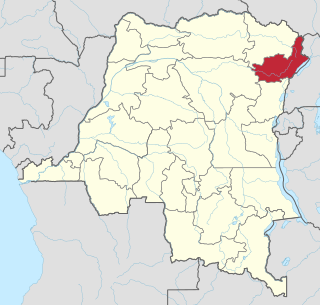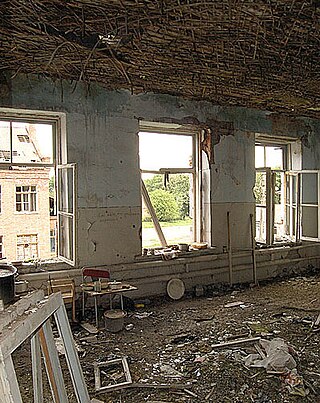
Children in the military, including state armed forces, non-state armed groups, and other military organizations, may be trained for combat, assigned to support roles, such as cooks, porters/couriers, or messengers, or used for tactical advantage such as for human shields, or for political advantage in propaganda. Children have been recruited for participation in military operations and campaigns throughout history and in many cultures.

The Optional Protocol to the Convention on the Rights of the Child on the Involvement of Children in Armed Conflict (OPAC), also known as the child soldier treaty, is a multilateral treaty whereby states agree to: 1) prohibit the conscription into the military of children under the age of 18; 2) ensure that military recruits are no younger than 16; and 3) prevent recruits aged 16 or 17 from taking a direct part in hostilities. The treaty also forbids non-state armed groups from recruiting anyone under the age of 18 for any purpose.

United Nations Security Council Resolution 1325 (S/RES/1325), on women, peace, and security, was adopted unanimously by the UN Security Council on 31 October 2000, after recalling resolutions 1261 (1999), 1265 (1999), 1296 (2000), and 1314 (2000). The resolution acknowledged the disproportionate and unique impact of armed conflict on women and girls. It calls for the adoption of a gender perspective to consider the special needs of women and girls during conflict, repatriation and resettlement, rehabilitation, reintegration, and post-conflict reconstruction.

United Nations Security Council Resolution 1919, adopted unanimously on April 29, 2010, after recalling resolutions 1674 (2006), 1894 (2009) on the protection of civilians in armed conflict, 1612 (2005) and 1882 (2009) on children in armed conflict, 1502 (2003) on the protection of humanitarian and United Nations personnel, and 1325 (2000), 1820 (2008), 1888 (2009), and 1889 (2009) on women, peace, and security, the Council extended the mandate of the United Nations Mission in Sudan (UNMIS) until April 30, 2011 with the intention of renewing it further if necessary.

United Nations Security Council resolution 1261, adopted unanimously on 25 August 1999, in the first resolution to address the topic, the Council condemned the targeting of children in armed conflict including the recruitment and use of child soldiers.

United Nations Security Council resolution 1270 was adopted unanimously on 22 October 1999. After recalling resolutions 1171 (1998), 1181 (1998), 1231 (1999) and 1260 (1999) on the situation in Sierra Leone and Resolution 1265 (1999) on the protection of civilians in armed conflict, resolution 1270 adopted by the Security Council established the United Nations Mission in Sierra Leone (UNAMSIL) to assist in the implementation of the Lomé Peace Accord.

United Nations Security Council resolution 1314 was adopted unanimously on 11 August 2000, after recalling Resolution 1261 (1999) on children and armed conflict and other resolutions including 1265 (1999), 1296 (2000) and 1306 (2000). The Council expressed concern at the impact of conflict upon children and the use of child soldiers, and expressed willingness to consider further measures under the United Nations Charter when dealing with situations of children in armed conflict.

United Nations Security Council resolution 1341, adopted unanimously on 22 February 2001, after recalling resolutions 1234 (1999), 1258 (1999), 1265 (1999), 1273 (1999), 1279 (1999), 1291 (2000), 1296 (2000), 1304 (2000), 1323 (2000) and 1332 (2000) on situation in the Democratic Republic of the Congo, the Council demanded that all parties to the conflict in the country implement disengagement plans and adopt withdrawal plans for foreign troops by 15 May 2001.

United Nations Security Council resolution 1379, adopted unanimously on 20 November 2001, after recalling resolutions 1261 (1999), 1265 (1999), 1296 (2000), 1306 (2000), 1308 (2000), 1314 (2000) and 1325 (2000), the Council considered provisions to protect children during peacekeeping operations and requested the Secretary-General to identify parties to conflict that used or recruited child soldiers.

United Nations Security Council resolution 1460, adopted unanimously on 30 January 2003, after recalling resolutions 1261 (1999), 1265 (1999), 1296 (2000), 1306 (2000), 1308 (2000), 1314 (2000), 1325 (2000) and 1379 (2001), the council called for the immediate end to the use of child soldiers and endorsed an "era of application" of international norms and standards for the protection of war-affected children.

United Nations Security Council resolution 1468, adopted unanimously on 20 March 2003, after recalling previous resolutions on the situation in the Democratic Republic of the Congo, the Council welcomed an agreement on the establishment of a transitional government and requested an increased presence of the United Nations Mission in the Democratic Republic of Congo (MONUC) in the Ituri region in the east of the country amid escalating violence.

United Nations Security Council resolution 1493, adopted unanimously on 28 July 2003, after recalling all resolutions on the situation in the Democratic Republic of the Congo, the council extended the mandate of the United Nations Mission in the Democratic Republic of Congo (MONUC) until 30 July 2004 and raised its troop level from 8,700 to 10,800.

United Nations Security Council resolution 1521, adopted unanimously on 22 December 2003, after recalling all previous resolutions on the situation in Liberia and West Africa, the council established a monitoring body to oversee international sanctions against Liberia. It was the final Security Council resolution adopted in 2003.

United Nations Security Council resolution 1539, adopted unanimously on 22 April 2004, after recalling resolutions 1261 (1999), 1308 (2000), 1314 (2000), 1325 (2000), 1379 (2001) and 1460 (2003), the council condemned the use of child soldiers and asked the Secretary-General to devise a monitoring mechanism.
The United Nations Security Council Working Group on Children and Armed Conflict (CAAC) was introduced in July 2005 to recommend methods of protecting children impacted by armed conflicts.

United Nations Security Council Resolution 1952, adopted unanimously on November 29, 2010, after recalling previous resolutions on the situation in the Democratic Republic of the Congo, including resolutions 1807 (2008), 1857 (2008) and 1896 (2009), the Council renewed an arms embargo and related targeted sanctions for a further period until November 30, 2011.

United Nations Security Council resolution 1596, adopted unanimously on 18 April 2005, after recalling all previous resolutions on the situation in the Democratic Republic of the Congo, including resolutions 1493 (2003), 1533 (2004), 1552 (2004), 1565 (2004) and 1592 (2005), the council expanded the arms embargo to include all recipients of weapons in the country, and imposed a travel ban and asset freeze on those violating the embargo.

United Nations Security Council Resolution 1998, adopted unanimously on July 12, 2011, after reaffirming resolutions 1261 (1999), 1314 (2000), 1379 (2001), 1460 (2003), 1539 (2004), 1612 (2005) and 1882 (2009) on the protection of children in armed conflict, the Council declared schools and hospitals off limits for both armed groups and military activities, asking the Secretary-General for such crimes to be placed on a list of those committing "grave violations" against children.

United Nations Security Council Resolution 2002, adopted unanimously on July 29, 2011, after recalling resolutions 733 (1992), 1519 (2003), 1558 (2004), 1587 (2004), 1630 (2005), 1676 (2006), 1724 (2006), 1744 (2007), 1766 (2007), 1772 (2007), 1801 (2008), 1811 (2008), 1844 (2008), 1853 (2008), 1862 (2009), 1907 (2009), 1916 (2010) and 1972 (2011), the Council tightened sanctions against Eritrea and Somalia to include individuals and entities recruiting or using child soldiers in the Somali Civil War, in addition to those responsible for attacks against schools and hospitals in Somalia.
United Nations Security Council Resolution 1882 was unanimously adopted on 4 August 2009.


















